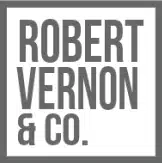In the world of print consulting, success hinges on meticulous attention to detail and the ability to navigate potential pitfalls. From design flaws to logistical oversights, every decision can make or break a project. In this guide, we’ll explore ten common mistakes that print consultants must avoid to ensure smooth operations and exceptional results. Whether you’re a seasoned professional or just starting out in the field, these insights will help you steer clear of disaster and elevate your print consulting game.
Print consulting demands a blend of creativity, technical expertise, and project management skills. Yet, even the most experienced consultants can fall prey to avoidable errors. From miscommunications with clients to overlooking critical details in production, the consequences of these mistakes can be costly and damaging.
These ten common pitfalls, print consultant can safeguard their projects and reputation:
1. Neglecting Detailed Project Briefs:
Effective communication is the cornerstone of successful print projects. Failing to establish clear and comprehensive project briefs can lead to misunderstandings, delays, and dissatisfaction. Print consultants must prioritize thorough discussions with clients to gather all necessary details, including objectives, target audience, budget constraints, and timelines.
2. Underestimating Print Specifications:
Print production is a complex process with numerous variables to consider. From paper quality to ink types, overlooking specific print specifications can result in subpar outcomes. Print consultants must conduct detailed research and collaborate closely with printers to ensure that every aspect of the project meets the desired standards and expectations.
3. Ignoring Prepress Preparation:
Prepress preparation is a critical phase in print production that is often overlooked. Neglecting to address issues such as color accuracy, image resolution, and font embedding can lead to costly reprints and production delays. Print consultants should work closely with designers and printers to thoroughly review and approve prepress files before proceeding to production.
4. Overlooking Proofing Processes:
Proofing is essential for detecting errors and ensuring that the final print meets the client’s expectations. Rushing through the proofing process or skipping it altogether can result in costly mistakes and client dissatisfaction. Print consultant must implement robust proofing procedures, including multiple rounds of review and approval, to minimize the risk of errors slipping through.
5. Failing to Account for Budgetary Constraints:
Print projects often operate within tight budgetary constraints, requiring careful cost management and resource allocation. Failing to accurately estimate costs or monitor expenses throughout the project can lead to budget overruns and strained client relationships. Print consultants must develop detailed budgets and contingency plans to navigate financial challenges effectively.
6. Overpromising and under delivering:
Building trust with clients is paramount in the print consulting industry. Making unrealistic promises or setting unattainable expectations can damage credibility and harm professional relationships. Print consultants must communicate openly and honestly with clients, managing expectations and delivering on commitments to maintain trust and satisfaction.
7. Neglecting Post-Production Quality Control:
Quality control doesn’t end when the print job is completed. Neglecting to inspect finished products for defects or discrepancies can result in costly rework and reputational damage. Print consultants must conduct thorough post-production inspections to ensure that the final deliverables meet the highest standards of quality and consistency.
8. Disregarding Environmental Considerations:
In today’s eco-conscious landscape, sustainability is a growing priority for print projects. Disregarding environmental considerations, such as paper sourcing and waste management, can alienate environmentally conscious clients and hinder business growth. Print consultants must integrate sustainable practices into their workflows and educate clients on the benefits of eco-friendly printing options.
9. Mismanaging Client Relationships:
Strong client relationships are the lifeblood of successful print consulting practices. Miscommunications, conflicts, or unmet expectations can sour relationships and damage reputations. Print consultants must prioritize open and transparent communication, actively listening to client feedback and addressing concerns promptly and professionally.
10. Neglecting Professional Development:
The print industry is constantly evolving, with new technologies and trends shaping the landscape. Failing to invest in ongoing professional development can leave print consultants outdated and ill-equipped to meet client needs. Print consultants must stay abreast of industry developments, attend relevant workshops and conferences, and seek opportunities for skills enhancement and growth.
In the dynamic world of Print Consultant, avoiding disaster requires diligence, expertise, and a commitment to continuous improvement. By steering clear of these ten common mistakes, print consultants can elevate their practice, build stronger client relationships, and achieve greater success in their projects. Remember, success lies not only in the quality of the final print but also in the journey of thoughtful planning, precise execution, and proactive problem-solving.
Ready to take your print consulting skills to the next level? For more details and personalized guidance, contact Robert Vernon at Robert@robertvernon.com or call (208) 274-7282. Stay connected for regular updates, tips, and resources to help you thrive in the ever-changing world of print consulting. Let’s navigate the challenges, seize the opportunities, and create exceptional print experiences for clients around the globe.

